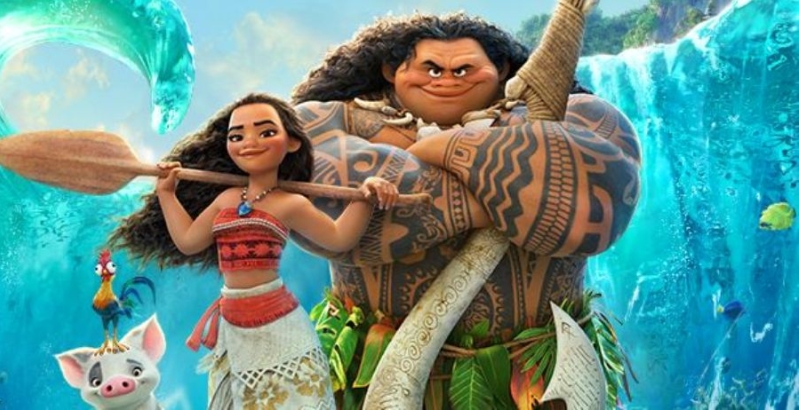
Disney Studios' new full-length, animated feature, "Moana," expands the ethnic and religious diversity in its heroines, and is likely to impact children in mainstream Christian, Jewish and secular homes in a considerable manner, said Mark Pinsky, author of "The Gospel According to Disney: Faith, Trust, and Pixie Dust."
"Moana" finished No. 1 at the box for the third weekend in a row, earning $145 million since opening over the Thanksgiving weekend. It also was nominated for a Golden Globe award.
Pinsky reported in RNS that Disney's consistent, optimistic gospel is: "If you believe in yourself, and appeal to a power greater than yourself for help, then good will always triumph over evil."
In "Moana," a spirited Polynesian girl, played by Auli'i Cravalho, is a native Hawaiian. Reviewers and cultural critics have noted that "Moana" represents the continuing evolution of Disney's template for female heroines -- female princesses who act, rather than being acted upon, and who don't need to marry a prince to find redemption or validation.
Pinsky stated that Walt Disney, who called himself a Christian but rarely attended church, always downplayed explicit religious symbolism in his animated features, preferring to use magic as supernatural intervention. This concept reflects what the 20th-century social philosopher Will Herberg called America's secular, "civic religion" - faith in faith, asserted Pinsky.
"It is not faith in anything (in particular) that is so powerful," Herberg wrote, "just faith, the 'magic of believing.'"
Pinsky said the character Moana - the film's "chosen one" - is also non-Christian as well as non-Caucasian, thus broadening the religious spectrum presented in Disney's world.
The new movie's narrative is built around traditional Polynesian cosmology, starting with the islanders' ancient origin story, in which the island goddess Te Fiti created all life. The demigod Maui, a brawny, extravagantly tattooed shape-shifter and trickster with a magical fishhook, sings and speaks about how he "lassoed the sun," and gave Polynesian mortals fire, as well as their island homes. Dwayne "The Rock" Johnson, who is half Samoan, plays Maui. Moana and Maui travel across the sea as wave-riding navigators, to return Te Fiti's glowing heart, which Maui stole years before. His theft turned the goddess into a slumbering, sacred island, and the resulting curse has caused the fish to flee the waters around Moana's island and its coconuts to spoil. To return the heart and lift the curse, the pair must first do battle with another figure in the Polynesian pantheon, Te Ka, the Lava Witch. An apparition of her dead grandmother inspires Moana's quest.
Walt Disney's early, "unbroken parade of white, implicitly Christian princesses" began to change in the 1990s, said Pinsky. The studio's "princess palette," he said, embraced multiculturalism, featuring other faith traditions and ethnicities. "Aladdin," and "Pocahontas" demonstrated that it was no longer necessary to be European to be a Disney princess. Then the characters in "Mulan" and (in male form) "Brother Bear," Disney animators introduced young viewers to the elements of Confucianism and shamanism. Additionally, "The Princess and the Frog" presented an African-American princess, an adherent of Voodoo/Santeria.
The new movie's presentation of Polynesian beliefs as lighthearted entertainment puts in sharp relief how some religions' origin narratives are taken seriously and considered sacred - regardless of how far-fetched - while others are seen as amusing mythology, or folklore, and thus diminished, states Pinsky.







